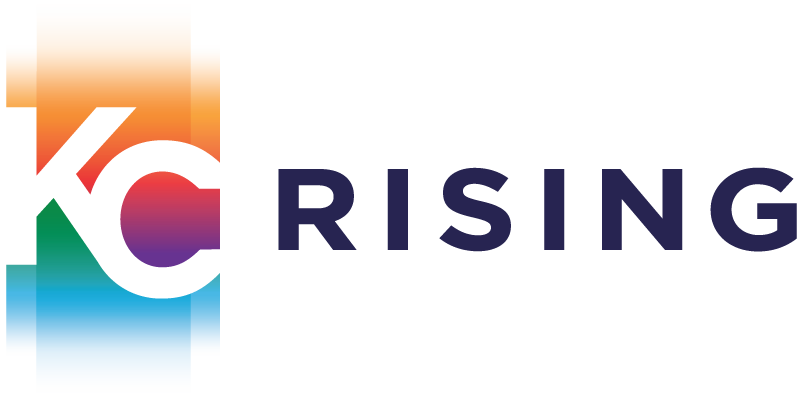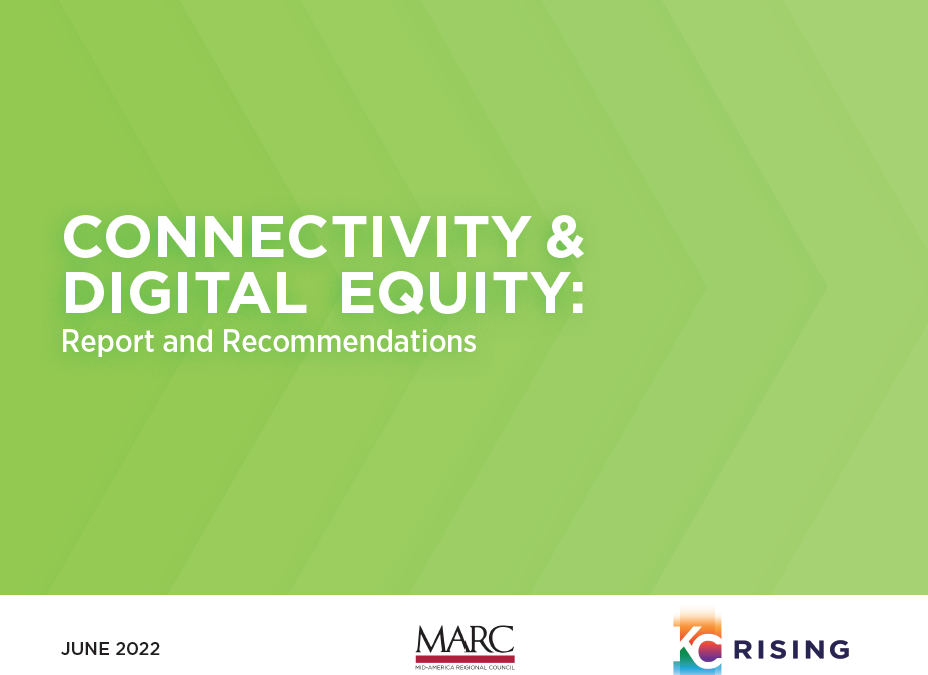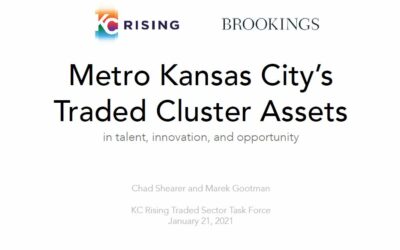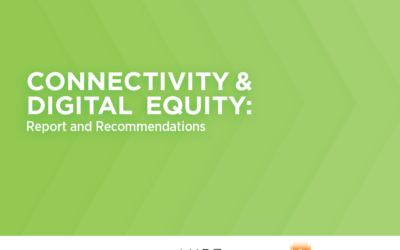In 2016, KC Rising released the Common Sector Competencies report, clarifying the skills valued by employers to help teachers and school districts align teaching and learning with the demands of the workplace. Many schools embraced the Common Sector Competencies, and teachers put into practice instruction to build and enhance these skills. As implementation grew, educators asked for help in prioritizing the 23 Common Sector Competencies.
Representatives from industry and education worked with learners to further refine and clarify the competencies. As part of that collaborative effort, a research team from the Urban Education Research Center convened young professionals who had entered the workplace in the previous one to five years to provide real world feedback on what it takes to enter and succeed in the world of work. They confirmed six categories of competencies as Essential Skills.
Access to the internet has become a fundamental asset that all Kansas City area households require in achieving economic prosperity. A recent study by KC Rising highlighted the increased importance for all households to have a reliable, affordable connection and computer devices for access to education, employment and health. The COVID-19 pandemic made this need more urgent, with over 100,000 area households currently without broadband subscriptions and computer devices to enable these meaningful uses. While many neighborhoods and communities show high numbers of households with internet subscriptions and devices, many urban core neighborhoods, small outlying communities, and rural areas lack such access.
The KC Rising PLACE Committee guided the preparation of the study, which found the need for high-speed broadband access, quality computer devices and training to be critical to inclusive prosperity for residents throughout the nine-county Kansas City region. Our region lags behind many peer metro areas around the nation; over one-fourth of the Kansas City region’s households lack broadband subscriptions. The study outlined three steps:
• Create a formal means for regional collaboration in addressing this critical need.
• Define a value framework to demonstrate the necessity of enabling access to high-quality internet services for all households.
• Define metrics to measure progress.
With this analysis and its findings, KC Rising, the Mid-America Regional Council and the Federal Reserve Bank of Kansas City are co-convening with community leaders, organizations, institutions and residents to outline a coordinated framework. The framework is for investing federal funds to improve the region’s broadband infrastructure and ensure all households can secure digital connections and services. Over the next four to six months, an assessment of the region’s current broadband infrastructure will identify underserved and underserved neighborhoods and communities.
Together, these efforts will help increase understanding of the barriers many households face in securing digital access, computer devices and training. They will also outline steps that various institutions and organizations could take to increase access for the region’s households to reliable, quality, affordable digital services.
Missouri and Kansas are doing the work to support the short-term decisions on using federal funds and establishing a solid foundation for continued work to allow all households digital access for economic prosperity.
-Marlene Nagel, Director of Community Development at Mid-America Regional Council
View the Connectivity and Digital Equity Report and Recommendations
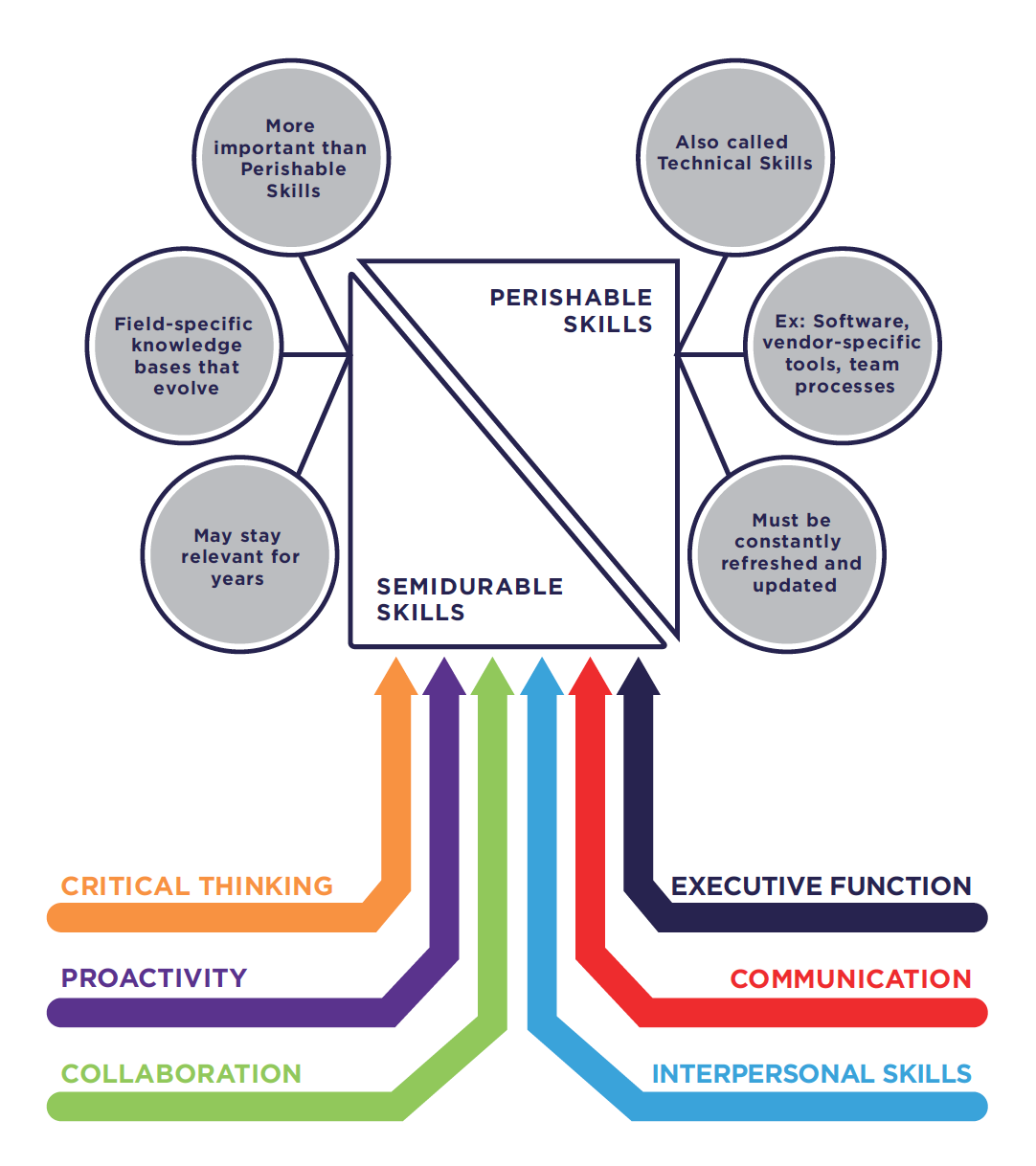
Other Resources
Metro Kansas City’s Traded Cluster Assets
Kansas City's innovation landscape is a magnet for life sciences R&D, offering a unique convergence of expertise with potential beyond health applications. The region eyes a pioneering role in the global biologics market, backed by first-mover advantage...
Connectivity and Digital Equity Report
Access to the internet has become a fundamental asset that all Kansas City area households require to achieve economic prosperity. A recent study by KC Rising highlighted the increased importance for all households to have a reliable, affordable connection and computer devices for access to education, employment and health. The COVID-19 pandemic made this need more urgent, with over 100,000 area households currently without broadband subscriptions and computer devices to enable these meaningful uses. While many neighborhoods and communities show high numbers of households with internet subscriptions and devices, many urban core neighborhoods, small outlying communities, and rural areas lack such access.
2022-2023 Shared Vision Strategic Priorities
Every year the Ewing Marion Kauffman Foundation conducts a survey to evaluate the quality of life for residents in the Kansas City region. After survey responses are collected, an analysis is conducted and shared with the community at large. The Mid – America Regional Council collaborated on the analysis in 2017 and created a dashboard for 2019 – 2020. For the 2021 survey, Kauffman partnered with Global Strategy Group and created the following dashboard. In addition, KC Rising worked collaboratively with Kauffman on producing an analysis comparing 2020 (pre-pandemic) to May 2021.
Kauffman Quality of Life Survey
Every year the Ewing Marion Kauffman Foundation conducts a survey to evaluate the quality of life for residents in the Kansas City region. After survey responses are collected, an analysis is conducted and shared with the community at large. The Mid – America Regional Council collaborated on the analysis in 2017 and created a dashboard for 2019 – 2020. For the 2021 survey, Kauffman partnered with Global Strategy Group and created the following dashboard. In addition, KC Rising worked collaboratively with Kauffman on producing an analysis comparing 2020 (pre-pandemic) to May 2021.
(Self Guided Tour) Dividing Lines: A History of Segregation in Kansas City
Journey through the history of segregation in the Kansas City metro, primarily through its real estate. The tour is designed so that you can safely drive through the city at your own pace while hearing stories about each area you travel through. View resource » Other...
Harvard Implicit Bias Association Test
View resource » Other Resources[dpdfg_filtergrid custom_query="related" related_taxonomies="committee_onboarding" show_thumbnail="off" use_overlay="off" show_post_meta="off" show_filters="off" pagination_type="button" items_width="40%" cache_on_page="on"...
2019 Inclusiveness Index | Othering & Belonging Institute
The Othering & Belonging Institute’s Inclusiveness Index is one of the first indices that measures equity without regard for national wealth or economic conditions. One of the challenges in measuring inclusivity is that it is difficult to disentangle policies...
Racism in Kansas City: A Short History
Kansas Citians, like so many others across the nation, wonder, “Could it happen here?” The answer lies in this study of Kansas City’s darkest moments—slavery, the border war, the Civil War, bombings of black homes, lynching, the segregation of neighborhoods and...
Nobody Wants to Talk About It: Race, Identity and the Difficulties in Forging Meaningful Conversations
For the past fifteen years, Michael Fosberg has performed an autobiographical one-man play at middle & high schools, colleges, corporations, government agencies and community organizations across the country. The play chronicles the journey to find his biological...
Blindspot: Hidden Biases of Good People
In Blindspot, Mahzarin Banaji and Anthony Greenwald explore hidden biases that we all carry from a lifetime of experiences with Blindspot approved social groups – age, gender, race, ethnicity, religion, social class, sexuality, disability status, or nationality....
